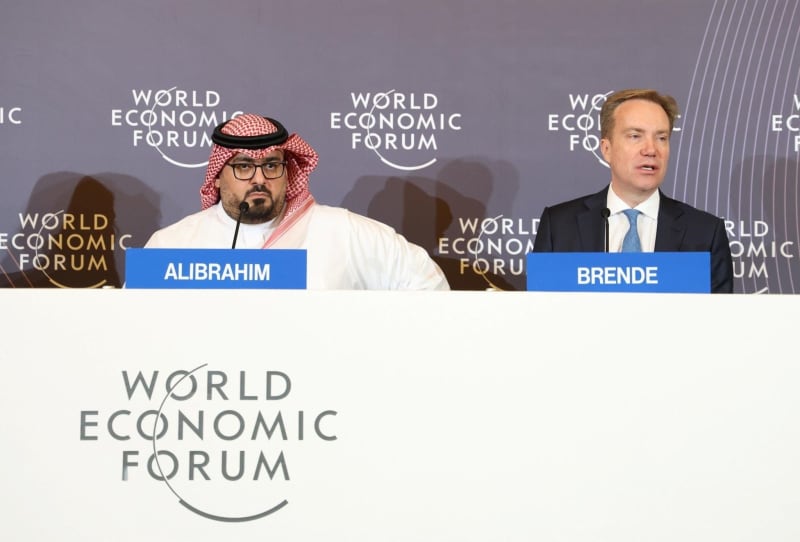The president of the World Economic Forum (WEF) on Saturday reported some movement in the arduous Middle East negotiations over releasing the hostages kidnapped from Israel on October 7 by the Palestinian Islamist Hamas group in Gaza.
“There is some movement in the talks about the hostages and a possible way out of the impasse we are in,” Børge Brende said in Saudi Arabia’s capital Riyadh.
Saudi Arabia is hosting a WEF business conference in Riyadh on Sunday and Monday. Parallel to this, foreign ministers of Saudi Arabia, Egypt, Qatar, the United Arab Emirates and Jordan will meet on Monday in Riyadh with their US, German, British, French and Italian counterparts, the diplomatic sources said.
Brende said Saudi Arabia’s Foreign Minister Faisal bin Farhan had assembled a “good group,” for the talks including US Secretary of State Antony Blinken, who will visit Riyadh on his way from China and before visiting Israel. Qatar’s Prime Minister Mohammed bin Abdulrahman Al Thani, whose country is mediating between Hamas and Israel will also be there as will Egypt. Israel will not be attending, Brende said.
On Saturday, Arab foreign ministers wanted to find a “united Arab position” in advance of the meeting and also consult with a representative of the Palestinian Authority.
Brende’s comments came as a top Hamas official said on Saturday that the group is studying an Israeli counterproposal regarding a potential ceasefire in Gaza, as a ground assault on the city of Rafah looms.
Khalil al-Hayya, the deputy head of the group’s political arm in Gaza, said in a statement posted on Telegram that the Israeli side was responding to a proposal Hamas had presented to Egyptian and Qatari mediators on April 13. The talks have been deadlocked for months.
Israeli preparations for a major ground offensive on Rafah – the southernmost city in the Gaza Strip and the territory’s last Hamas stronghold – are reportedly putting pressure on the group.
US media outlet Axios reported, citing two senior Israeli officials, that Israel had warned Egypt that this would be the “last chance” to strike a deal before its Rafah operations begin.
Axios and Israeli media reported that Hamas and Israel are at loggerheads over the scope of the deal, including how many hostages could be released and how long the ceasefire would last. Hamas is demanding a permanent ceasefire, which Israel rejects.
Israel’s allies and critics have for months implored Prime Minister Benjamin Netanyahu to call off the invasion of Rafah, fearing mass civilian casualties. More than a million displaced Palestinians from other parts of the Gaza Strip have taken shelter there.
The Gaza war was triggered by the unprecedented massacre of more than 1,200 people by militants from Hamas and other groups in Israel on October 7.
The Hamas-controlled health authority on Saturday put the number of people killed in Gaza at 34,388, 32 more than the previous day. More than 77,400 people have been injured. The authority does not differentiate between civilians and combatants.
In one further example of the tragedy in Gaza, a baby girl who the United Nations said was removed from her dying mother’s womb by caesarean section, has died due to the deterioration of her condition, health officials in the coastal strip said on Saturday.
According to the UN, the baby’s mother was fatally injured in an Israeli attack on a residential building in Rafah.
Meanwhile, Hamas released another hostage video in which two men support a deal between the group and Israel’s government to release the remaining people who were kidnapped in October.
In the undated recording, one of the men said in Hebrew that he had been in captivity for 202 days. Saturday marked 204 days since the mass kidnappings.
The second hostage – a man who, according to Israeli media, also holds US citizenship – called in the video for demonstrations to continue in Tel Aviv and Jerusalem for the release of the hostages. Further demonstrations were planned for the evening in Israel.
Israel says Hamas uses these videos to psychologically terrorize the hostages’ families.
